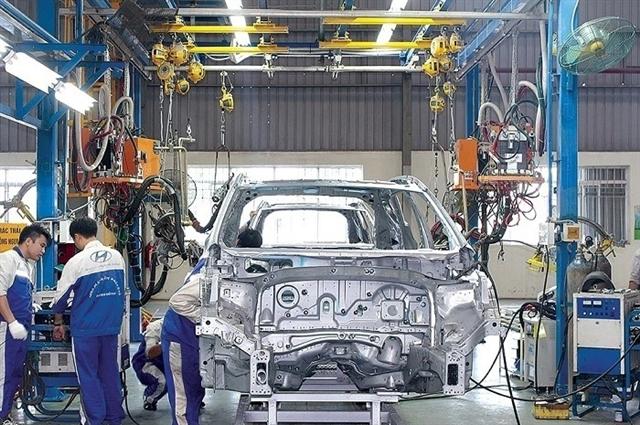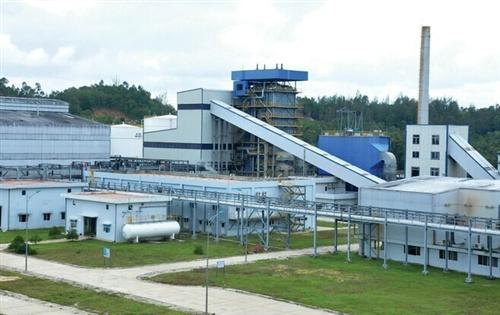Localization rate in Vietnam’s car industry remains low compared to regional peers
Localization rate in Vietnam’s car industry remains low compared to regional peers
The main issues of the local automobile industry lie in the inability to master core technologies such as engine production, the control and transmission systems.
The localization rate for passenger cars of up to nine seats in Vietnam remains much lower compared to the target and of countries in the region, according to the Ministry of Industry and Trade (MoIT).

Illustrative photo.
|
To date, Vietnam’s automobile industry is only involved in the low segment of the value chain, leading to its highly dependence on production assignments of the world’s major car manufacturers, said the MoIT in a report sent to the National Assembly on the current situation of the domestic automobile manufacturing and assembly industry.
Vietnam has so far launched a number of large-scale car automobile assembly projects to meet both domestic and regional demands. Once completed, these projects would help enhance the competitiveness of domestically-assembled cars against those imported in the short- and mid terms.
However, these advantages have gradually diminished, given a growing number of imported cars which increased 70% year-on-year in 2019.
According to the MoIT, the main issues of the local automobile industry lie in the inability to master core technologies such as engine production, the control and transmission systems, while localized parts are mostly of low technology, including tires, mirrors, car frame, plastic products, car seats, among others.
Moreover, high production costs are making prices of domestic cars 10 – 20% more expensive than those imported from ASEAN nations, especially as the automobile import tariff was removed since the ASEAN Trade in Goods Agreement (ATIGA) took effect in early 2018.
“Small-scale of production and under-developed supporting industries are two factors leading to a high production cost domestically,” stated the MoIT.
The MoIT also pointed out that Vietnam’s automobile industry only got its proper start in the 2000s, 20 or 30 years after Thailand or Indonesia. This is also one of the reasons attributable to the lack of an ecosystem to support the automobile industry in Vietnam.
In order to boost the development of the automobile industry and localization rate, the MoIT suggested the government should speed up the administrative procedures towards a reduction in excise tax for locally-made auto parts.
The MoIT said the move would help domestic cars become more price-competitive compared to imported ones, and at the same time encourage local producers to boost the localization rate, and eventually the support industries for automobile.

























